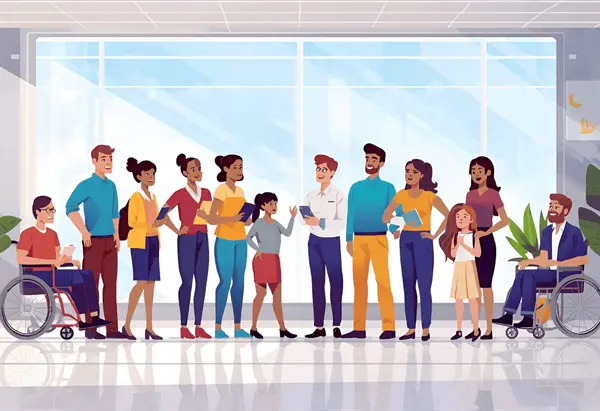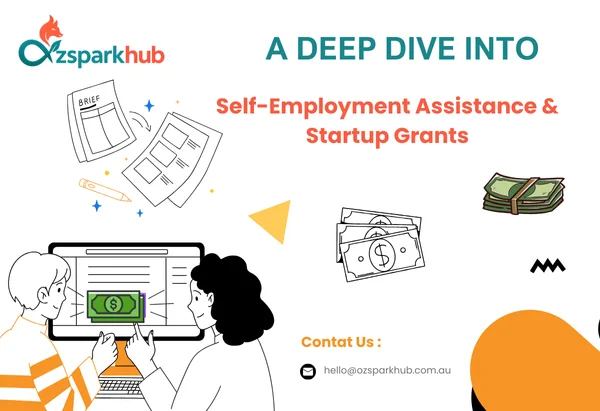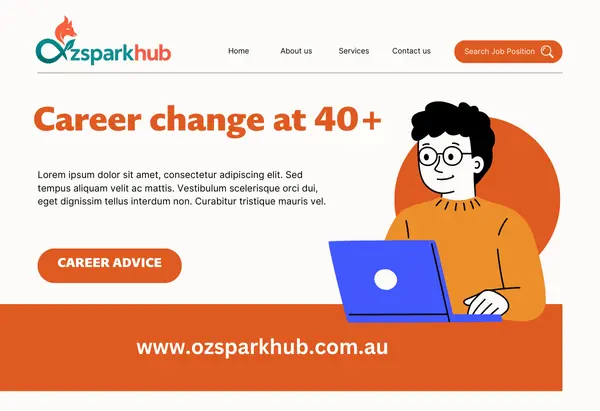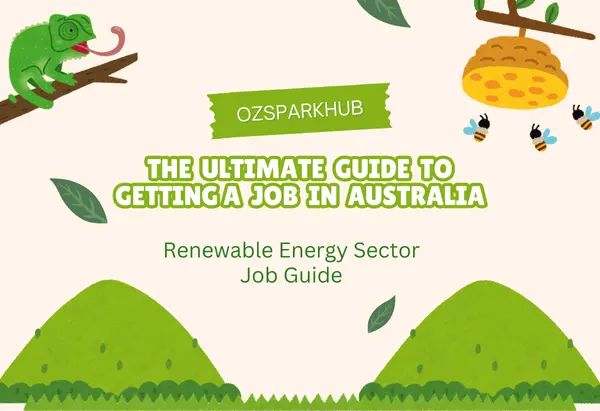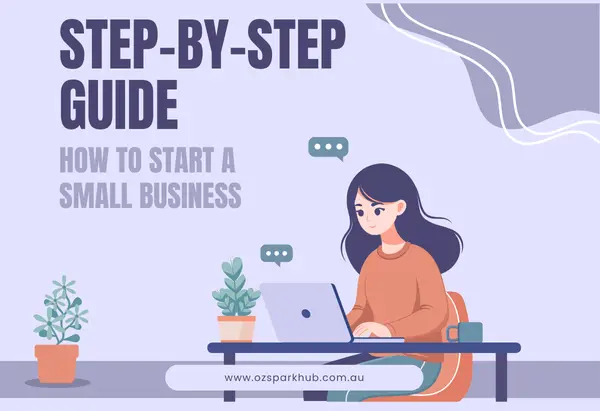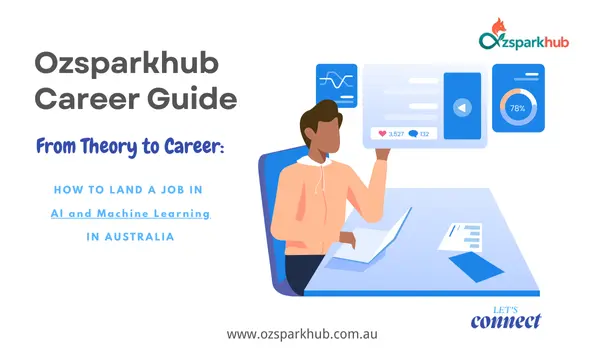Disability Employment Services Reform 2025: Complete Guide to Inclusive Employment Australia Transition
Disability Employment Services Reform 2025: Complete Guide to Inclusive Employment Australia
The Australian employment landscape for people with disability is undergoing its most significant transformation in decades. On 1 November 2025, the current Disability Employment Services (DES) program will be replaced by Inclusive Employment Australia - a comprehensive new system designed to create more inclusive workplaces and better support for job seekers with disability, injury, or health conditions.
Key Fact: Currently supporting 245,000 participants across Australia, DES will transition to Inclusive Employment Australia with an additional $227.6 million investment over 5 years, enabling support for an estimated 15,000 additional people annually.
Quick Navigation
What is Inclusive Employment Australia?
- Replaces DES from 1 November 2025
- No time limits on support
- Expanded eligibility (including <8 hours work capacity)
- $227.6 million additional investment
- Automatic transition for current participants
Inclusive Employment Australia represents a paradigm shift in how Australia supports people with disability to find and maintain employment. This new specialist disability employment program will replace the existing Disability Employment Program/Services (DES) and introduces groundbreaking improvements in accessibility, support duration, and service quality.
Vision and Objectives
The program aims to create "a more inclusive future where people with disability as well as those with injury or health condition can get support to prepare for, find and maintain work, and grow their career."
Context: With only 56.1% of working-age people with disability employed compared to 82.3% of people without disability (ABS 2022), this reform addresses critical gaps in employment support.
Core objectives include:
- Eliminating artificial barriers to employment participation
- Providing comprehensive support throughout the employment journey
- Creating sustainable career pathways rather than just job placements
- Building employer capacity for inclusive hiring practices
Key Changes: What's Different in 2025?
1. Expanded Eligibility Criteria
New Participant Categories
Major expansion includes access for:
People with work capacity under 8 hours per week
- Previously excluded from DES
- Recognition that all work capacity has value
- Micro-employment and supported employment options
Voluntary participants not receiving Centrelink payments
- People in work seeking career advancement
- Those preparing for employment transitions
- Students with disability planning career entry
Enhanced Support Categories
- Intensive pre-employment support for those not yet ready to work
- Career development services for existing workers
- Transition support for people whose circumstances change
- Long-term sustainability coaching
2. Removal of Time Restrictions
Unlimited Program Duration
Revolutionary change: The restrictive two-year limit has been completely eliminated.
Benefits include:
- Ongoing support for as long as needed
- Career-long relationship with service providers
- Responsive support during workplace changes
- No rushed job placements to meet arbitrary deadlines
This change acknowledges that employment support for people with disability is often an ongoing need, not a short-term intervention.
3. Enhanced Service Offerings
Intensive Preparation Support
New pre-employment intensive support includes:
- Skills assessment and development planning
- Confidence building and workplace preparation
- Technology training and digital literacy
- Soft skills development for workplace integration
- Health and wellness support services
Comprehensive Career Development
- Career pathway planning beyond initial job placement
- Professional development opportunities and funding
- Leadership training and advancement support
- Entrepreneurship and self-employment assistance
Timeline and Transition Process
Critical Dates for 2025
16 October 2025: Transition Begins
- DES providers not continuing: Will cease services and begin transferring participants
- Transitioning providers: Start transition preparations to new IEA model
- Participants: Begin receiving transition information from Department of Social Services
31 October 2025: Transition Completion
- Final transfers: All DES providers complete transition to IEA
- System preparation: New IT systems ready for launch
- Service continuity: Seamless support maintained throughout transition
1 November 2025: Official Launch
- Program commencement: Inclusive Employment Australia officially replaces DES
- 3 November 2025: First date of service under new IT system
- Enhanced services: New support offerings and expanded eligibility immediately available
What Current DES Participants Need to Know
Automatic Transition
- No action required: All current DES participants automatically transfer
- Continuous support: No interruption to services during transition
- Enhanced benefits: Immediate access to improved services
- Same provider: Many participants will remain with existing providers
Communication Timeline
From August 2025:
- Department of Social Services commences writing to all current participants
- Personalized letters explaining what the changes mean for you
- Provider contact to discuss individual transition arrangements
- Important: No changes to your work requirements or Centrelink payments
Provider Network Changes
Successful Tender Results
- Over 120 tenders received for Inclusive Employment Australia Request for Tender (closed 4 November 2024)
- More than 80 tenders for National Panel of Assessors (closed 11 November 2024)
- Highly competitive procurement ensuring quality service delivery
- National coverage maintained across all regions
Service Continuity Measures
- Established providers: Many existing providers continue under new model
- Staff retention: Experienced employment consultants retained
- Local knowledge: Community relationships and expertise preserved
- Quality standards: Enhanced training and certification requirements
Investment and Expansion Details
Financial Commitment
$227.6 Million Additional Investment
Allocated over 5 years as part of $5.5 billion total commitment to disability employment:
- Service expansion to support an estimated 15,000 additional people annually
- Wage subsidies increase up to $10,000 per eligible participant
- Centre for Inclusive Employment - $22.1 million for best practice development
- Technology improvements and new IT system implementation
Current Participant Protection
The 245,000 current DES participants receive assurance:
- Guaranteed continuation of support services
- No reduction in service quality during transition
- Enhanced options available immediately upon launch
- Family and carer support maintained and expanded
Expected Outcomes
Participation Growth
- 15,000 additional participants estimated annually
- Current base: 245,000 existing DES participants transitioning
- Total projected capacity: 260,000+ participants
- Key expansion: People with work capacity under 8 hours per week now eligible
Employment Quality Improvements
- Higher job retention rates through ongoing support
- Career advancement opportunities beyond initial placement
- Wage progression support and advocacy
- Workplace inclusion training and consultation
New Eligibility Framework
Work Capacity Assessments
Under 8 Hours per Week Category
Groundbreaking inclusion provides:
- Micro-employment opportunities (2-8 hours weekly)
- Supported employment in sheltered workshops
- Volunteer work with employment skills development
- Social enterprise participation and training
Assessment Process
- Comprehensive evaluation by qualified assessors
- Functional capacity rather than medical diagnosis focus
- Regular reassessment to capture changing capabilities
- Person-centered planning incorporating individual goals
Voluntary Participation Pathway
Non-Centrelink Recipients
New category includes:
- Working people seeking career advancement
- Students with disability preparing for workforce entry
- Career changers needing specialized support
- Returning workers after injury or illness
Service Entitlements
- Career coaching and planning services
- Skills development and training opportunities
- Job placement assistance for career transitions
- Ongoing workplace support and advocacy
Enhanced Support Services
Pre-Employment Intensive Support
Readiness Assessment
Comprehensive evaluation covering:
- Functional capacity for work activities
- Skills gaps and development priorities
- Support needs and accommodation requirements
- Career interests and goal identification
Preparation Programs
- Skills training in high-demand industries
- Workplace simulation and practical experience
- Confidence building through structured activities
- Health and wellness support services
- Digital literacy and technology training
Workplace Integration Support
Job Matching Services
- Skills-based matching rather than disability-focused placement
- Employer engagement and education programs
- Workplace assessments and modification recommendations
- Trial periods and supported transitions
Ongoing Employment Support
- Regular check-ins and progress monitoring
- Crisis intervention and problem-solving support
- Career development planning and implementation
- Advocacy services for workplace issues
Career Advancement Pathways
Professional Development
- Training funding for skills enhancement
- Mentorship programs with industry professionals
- Leadership development opportunities
- Networking events and industry connections
Entrepreneurship Support
- Business planning assistance and guidance
- Start-up funding information and applications
- Disability business networks and peer support
- Ongoing consulting for business development
Employer Engagement and Inclusion
Inclusive Hiring Initiatives
Employer Education Programs
- Disability awareness training and workshops
- Inclusive recruitment strategies and techniques
- Workplace modification guidance and funding
- Legal compliance training and support
Financial Incentives
- Wage subsidies up to $10,000 per eligible participant (increased from previous levels)
- Employment Assistance Fund for workplace modifications and assistive technology
- Training support including disability awareness and Auslan interpreting
- Ongoing support to reduce hiring risks and costs for employers
Workplace Inclusion Support
Accessibility Consulting
- Physical environment assessments and recommendations
- Technology solutions for digital accessibility
- Communication support and assistance devices
- Policy development for inclusive practices
Cultural Change Programs
- Inclusive leadership training for managers
- Employee awareness campaigns and activities
- Mentorship programs pairing disabled and non-disabled workers
- Success story sharing and celebration events
National Panel of Assessors Reform
Enhanced Assessment Process
Qualified Assessor Network
- More than 80 tenders received for National Panel of Assessors program
- National consistency in assessment standards across all states
- Streamlined processes for capacity evaluations
- Direct provider referrals to reduce bureaucracy and wait times
Assessment Improvements
- Holistic evaluations considering all aspects of work capacity
- Regular reassessment to capture changing circumstances
- Appeals process for disputed assessments
- Person-centered approach involving participant input
Streamlined Referral Process
Direct Provider Referrals
- Reduced bureaucracy in assessment requests
- Faster processing times for urgent cases
- Clear criteria for assessment requirements
- Digital platform for efficient communication
Industry-Specific Programs and Opportunities
High-Demand Sectors
Healthcare and Community Services
- Specialized training for healthcare support roles
- Infection control and safety certification
- Patient communication skills development
- Career pathways from entry to advanced roles
Technology and Digital Services
- Coding and programming bootcamps
- Digital marketing and social media training
- Accessibility testing and consulting skills
- Remote work preparation and support
Customer Service and Administration
- Communication skills enhancement
- Technology proficiency development
- Problem-solving and conflict resolution training
- Career progression from call center to management
Regional and Rural Focus
Agricultural and Primary Industries
- Seasonal employment support and coordination
- Equipment operation training and certification
- Safety training and workplace preparation
- Transport solutions for rural employment
Tourism and Hospitality
- Customer service excellence training
- Food safety and handling certification
- Event management and coordination skills
- Language support for multicultural tourism
Technology and Innovation
Digital Platform Enhancements
Participant Portal
- Self-service options for appointment booking
- Progress tracking and goal monitoring
- Resource library with training materials
- Communication tools for provider interaction
Provider Systems
- Integrated case management systems
- Outcome tracking and reporting tools
- Employer matching algorithms
- Data analytics for service improvement
Assistive Technology Support
Workplace Technology
- Assessment and recommendation services
- Funding assistance for equipment purchase
- Training support for new technology adoption
- Ongoing technical support and maintenance
Digital Accessibility
- Screen reader and magnification software
- Voice recognition and alternative input devices
- Mobile accessibility apps and solutions
- Website and platform accessibility auditing
Success Measurement and Outcomes
Current Disability Employment Statistics (2022-2025)
Labour Force Participation
- 60.5% of working-age people with disability participate in labour force (vs 84.9% without disability)
- 56.1% employment rate for people with disability (vs 82.3% without disability)
- 7.5% unemployment rate for people with disability (vs 3.1% without disability)
- $575 median weekly income for people with disability (vs $1,055 without disability)
Performance Indicators
- Job placement rates by participant category and severity
- Employment sustainability beyond 26-week milestone
- Wage progression tracking and career advancement
- Employer retention and satisfaction metrics
Continuous Improvement Framework
Regular Reviews
- Annual program evaluation and enhancement
- Stakeholder consultation with participants and employers
- Provider performance monitoring and support
- Policy adjustment based on outcome data
Support for Families and Carers
Carer Engagement Programs
Information and Education
- Program orientation sessions for families
- Advocacy training for carers and supporters
- Resource development and distribution
- Peer support networks and groups
Transition Support
- Family counseling during employment transitions
- Financial planning assistance and guidance
- Legal rights education and advocacy
- Crisis support and intervention services
Frequently Asked Questions (FAQs)
Transition Process
Q: Do I need to do anything to transition from DES to Inclusive Employment Australia? A: No action is required. All current DES participants will automatically transition on 1 November 2025.
Q: Will I keep the same employment consultant? A: In most cases yes, especially if your current provider was successful in the tender process.
Q: What if I'm not happy with the transition arrangements? A: You can request a different provider or discuss concerns with the Department of Social Services.
New Services
Q: How do I access the intensive pre-employment support? A: Your employment consultant will assess your needs and arrange appropriate services based on your goals.
Q: Can I participate if I'm not receiving Centrelink payments? A: Yes, the new program includes voluntary participants who don't receive income support payments.
Q: Is there still a time limit on how long I can receive support? A: No, the two-year limit has been completely removed. Support continues as long as you need it.
Eligibility Changes
Q: I work less than 8 hours per week - can I now access services? A: Yes, the new program specifically includes people with work capacity under 8 hours per week.
Q: I'm currently working but want career advancement support - am I eligible? A: Yes, if you have a disability, injury, or health condition, you can access career development services.
Provider Changes
Q: What happens if my current provider didn't win a new contract? A: You'll be transferred to a successful provider in your area, with transition support to ensure continuity.
Q: How do I find out who my new provider will be? A: The Department of Social Services will notify you directly about any provider changes.
Action Steps for November 2025 Transition
Immediate Preparation Steps
For Current Participants
- Stay informed: Read all communications from your provider and government
- Document goals: Clearly articulate your employment and career objectives
- Update information: Ensure contact details and circumstances are current
- Ask questions: Discuss any concerns with your employment consultant
For Potential New Participants
- Check eligibility: Review new criteria to see if you qualify
- Gather documentation: Collect medical reports and capacity assessments
- Identify goals: Consider your employment and career aspirations
- Contact providers: Reach out to local providers to discuss services
Long-term Success Strategies
Setting Realistic Goals
- Short-term objectives: 3-6 month achievable targets
- Medium-term planning: 1-2 year career milestones
- Long-term vision: 5-10 year professional aspirations
- Flexibility: Ability to adapt goals as circumstances change
Building Support Networks
- Professional relationships: Employment consultants and workplace mentors
- Peer connections: Other participants and disability advocacy groups
- Family support: Involving carers and family in planning process
- Community resources: Local disability services and support organizations
Regional Implementation Across Australia
Metropolitan Areas - Sydney, Melbourne, Brisbane
- Provider density: Multiple IEA providers for participant choice
- Transport accessibility: Public transport integration with disability access
- Industry diversity: Tech, healthcare, professional services opportunities
- Specialist services: Access to specialized disability employment consultants
Regional Centres - Newcastle, Geelong, Gold Coast, Wollongong
- Local providers: Regional specialists with community knowledge
- Industry focus: Manufacturing, tourism, healthcare sectors
- Transport solutions: Community transport and workplace shuttle services
- Hybrid support: Mix of face-to-face and digital service delivery
Remote and Rural Areas - Northern Territory, Tasmania, Regional WA
- Mobile services: Outreach programs and visiting consultants
- Local employment: Agriculture, mining, tourism opportunities
- Digital support: Video consultations and online training
- Community partnerships: Working with local councils and organizations
Indigenous Communities and Cultural Diversity
- Aboriginal and Torres Strait Islander: Culturally safe service delivery
- Community engagement: Partnership with Indigenous employment organizations
- CALD communities: Multilingual support and cultural liaison officers
- Flexible approaches: Adapting services to diverse cultural needs and preferences
International Best Practices Integration
Global Innovation Adoption
- Supported employment models from international success stories
- Technology integration from leading accessible workplace programs
- Employer engagement strategies proven effective internationally
- Measurement frameworks aligned with global disability employment indicators
Conclusion: A New Era for Disability Employment
The launch of Inclusive Employment Australia on 1 November 2025 represents more than a program name change - it signals a fundamental shift toward truly inclusive employment practices in Australia. With enhanced eligibility, unlimited support duration, and comprehensive services, this reform positions Australia as a global leader in disability employment support.
Key benefits for participants:
- Expanded access for previously excluded groups
- Unlimited duration providing security and continuity
- Enhanced services addressing the full employment journey
- Career focus beyond simple job placement
Benefits for employers:
- Quality candidates with comprehensive pre-employment support
- Ongoing assistance reducing hiring risks and costs
- Inclusive culture development creating better workplaces for all
- Recognition and support for inclusive hiring practices
National impact:
- 260,000+ participants supported annually
- 15,000 additional people accessing services each year
- $227.6 million investment driving economic participation
- Cultural change toward genuine workplace inclusion
As we approach this historic transition, the success of Inclusive Employment Australia will depend on the commitment of participants, providers, employers, and the broader community to creating truly inclusive workplaces where everyone can contribute their talents and achieve their career aspirations.
The future of disability employment in Australia starts on 1 November 2025.
Need Help with Your Transition?
📞 Services Australia: 1800 805 260
💻 Online: servicesaustralia.gov.au
📧 Email your provider for specific transition details
This comprehensive guide to Inclusive Employment Australia reform is based on official government sources and verified data as of August 2025. Individual circumstances may affect service delivery and eligibility. For personalized information about your transition, contact your current DES provider or call Services Australia on 1800 805 260.
Last verified: All statistics and program details verified through Department of Social Services, Australian Bureau of Statistics, and official government announcements as of August 29, 2025.
Search Terms for Assistance:
- "Inclusive Employment Australia near me [your city]"
- "DES providers transitioning to IEA November 2025"
- "Disability employment services [your state] 2025"
- "NDIS employment support providers Australia"
- "Wage subsidies disability hiring Australia"
Location-Specific Resources:
- NSW: Services Australia offices in Sydney, Newcastle, Wollongong
- VIC: Melbourne, Geelong, Ballarat disability employment hubs
- QLD: Brisbane, Gold Coast, Townsville IEA providers
- WA: Perth, Bunbury regional disability services
- SA: Adelaide metropolitan and regional providers
- TAS: Hobart and Launceston specialist services
- NT: Darwin and Alice Springs employment support
- ACT: Canberra disability employment network
Last Updated: August 29, 2025
Related Resources:
- Australian Employer Wage Subsidies 2025: Complete Guide
- Centrelink JobSeeker Payment Rates 2025
- Mutual Obligations Exemptions Guide 2025
- How to Complain About Employment Provider 2025
Official Resources:
Disability Employment Services Reform 2025: Complete Guide to Inclusive Employment Australia Transition
https://www.ozsparkhub.com.au/Disability-Employment-Services-Reform-2025/
